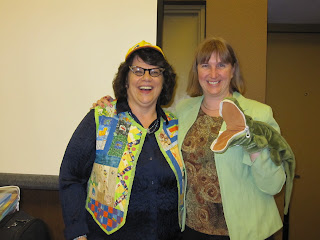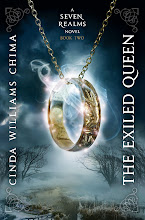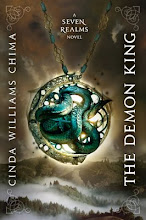Q: I am always curious what first goes through an author's mind when they begin to write a book.
But sometimes the problem is getting started. Nothing happens until you put something down on the page. But how?
The cool thing about writing as opposed to, say, building brick walls, is that writing is easy to revise and reshape. Sometimes at first, you can’t really tell where your story begins. My advice: don’t obsess about it. Get something down, and then make your decision in revision. Slash away at the fat at the beginning into you cut into the muscle of the story. That’s the beginning.
For me, books begin with a character, what the character wants, and the obstacles in the way. For example, in Twilight, Edward and Bella want to be together, but the fact that he is a vampire and wants to kill her from time to time is an obstacle. Then other obstacles surface—Jacob, for instance.
In The Demon King, reformed thief Han Alister wants to earn a living for himself and his family without returning to the gang life. What’s in the way? It’s really hard to make a living in Fellsmarch, because of the ongoing wars, he’s been accused of a series of murders, his mother thinks he’s demon-cursed, and the most powerful wizard family in the Fells is out to get him.
Usually, a book begins with an inciting incident. In The Demon King, Han Alister encounters three young wizards setting fire to his hunting grounds. He takes an amulet from one of them, and that brings a whole load of trouble down on his head.
I think it’s best to begin your story in scene, with characters on the stage, ensnaring us in their story. The opening of your story should establish voice and point of view, introduce conflict, and make a promise to the reader about the story to come.
It may be helpful to try reading opening scenes in books in your genre. How does the author begin? What does he or she choose to include, right up front?
As I said in my post on plunging vs plotting, you don’t have to have everything figured out in order to begin. Just know that there may be considerable clean-up at the end.

















